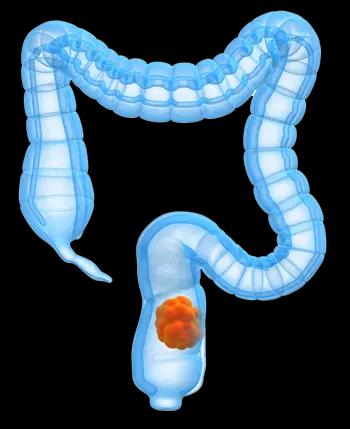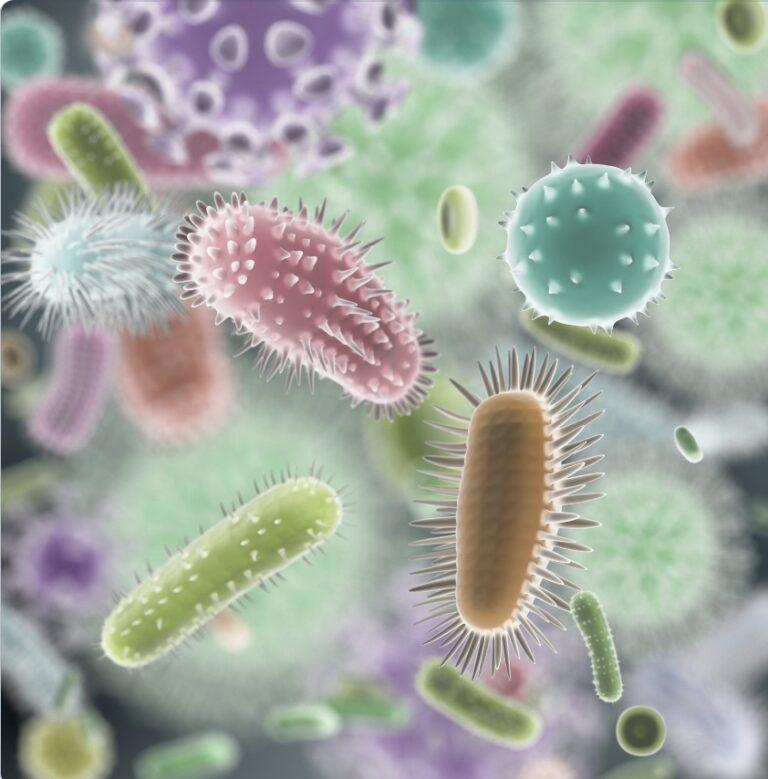

(Current Version)
Human papillomavirus (HPV) is a well-known cause of several types of cancer, but many people wonder: can HPV cause colorectal cancer (colorectal carcinoma)? This question has sparked interest among researchers and medical professionals alike. As one of the most common sexually transmitted infections worldwide, HPV has a significant impact on public health, making it crucial to understand its potential role in various forms of cancer.
Recent clinical trials have begun to explore the possible link between HPV and colorectal cancer, shedding light on this important topic. This article delves into the current understanding of HPV’s role in cancer development, examines the evidence for its connection to colorectal cancer, and discusses the methods used to detect HPV in colorectal tumours. By looking at the latest research, we aim to provide a clear picture of what is known about this potential relationship and its implications for cancer prevention and treatment.
Understanding colorectal cancer
Colorectal cancer is a type of cancer that originates in the colon or rectum, which are part of the digestive system. It can be called colon cancer or rectal cancer. It begins when abnormal cells in the inner lining of the colon or rectum start to grow and divide uncontrollably, forming a cancerous tumour (cancer cells). Over time, this tumour can penetrate deeper into the colon or rectal wall and potentially spread to nearby lymph nodes or other organs in the body.
Understanding HPV and its role in cancer
What is HPV?
Human papillomavirus (HPV) is a group of over 200 related viruses that affect human skin and mucous membranes. It is the most common sexually transmitted infection worldwide. HPV spreads easily through skin-to-skin sexual contact, making it highly prevalent among sexually active individuals.
One of the most notable characteristics of human papillomavirus infections is its ability to infect without causing noticeable symptoms. Many people with HPV infections are unaware they have the virus, which contributes to its widespread transmission. In most cases, the body’s immune system successfully clears the infection within two years, even without treatment. However, some HPV infections can persist and lead to various health complications.
Types of HPV
There are over 150 known strains of HPV, each with different characteristics and potential health impacts. These strains can be broadly categorised into two main groups:
- Low-risk HPV types: These strains, such as HPV 6 and 11, are responsible for about 90% of genital warts cases. While these warts can be uncomfortable and may require treatment, they rarely progress to cancer
- High-risk HPV types: At least 12 HPV strains are considered high-risk, with types 16 and 18 being the most concerning. These strains have a higher likelihood of causing persistent infections that can lead to cellular changes and, potentially, cancer
It’s important to note that a person can be infected with multiple HPV strains simultaneously, which can complicate diagnosis and treatment.
HPV-related cancers
While most HPV infections clear on their own, persistent infections with high-risk types can lead to the development of various cancers. HPV has a significant impact on cancer incidence worldwide, with an estimated 620,000 cancer cases in women and 70,000 cancer cases in men attributed to HPV in 2019.
The most well-known HPV-related cancer is cervical cancer, which is almost exclusively caused by HPV infections. Cervical cancer was the fourth leading cause of cancer and cancer deaths in women globally in 2022, with approximately 660,000 new cases and 350,000 deaths worldwide. This cancer type accounts for over 90% of HPV-related cancers in women.
However, HPV’s cancer-causing potential extends beyond the cervix. Other HPV-related cancers include:
- Anal cancer
- Penile cancer
- Oropharyngeal cancer (affecting the throat, tongue, and tonsils)
- Vaginal cancer
- Vulvar cancer
It’s crucial to understand that while HPV infection is a necessary factor in the development of these cancers, not all infections with high-risk HPV types progress to cancer. The progression from infection to cancer typically takes many years, allowing for opportunities for prevention and early detection.
Prevention strategies play a vital role in reducing the impact of HPV-related cancers. Vaccination has proven to be highly effective in preventing HPV infections and, consequently, the cancers they cause. The HPV vaccine is recommended for all girls aged 9-14 years, ideally before they become sexually active. Additionally, regular screening, particularly for cervical cancer, can detect precancerous changes early, allowing for timely intervention and treatment.
While HPV poses significant health risks, it’s important to remember that most people infected with the virus do not develop cancer. Factors such as a strong immune system, regular screenings, and healthy lifestyle choices can significantly reduce the risk of HPV-related complications.
The link between HPV and colorectal cancer
Recent research has shed light on the potential connection between Human Papillomavirus (HPV) infection and colorectal cancer (CRC). While HPV is well-known for its role in cervical cancer, its involvement in colorectal cancer has become a subject of increasing interest among researchers and healthcare professionals.
Evidence from studies
Several studies have explored the relationship between HPV and colorectal cancer, providing evidence for a potential link. A systematic review and meta-analysis of eight articles revealed that HPV infection does increase the risk of CRC. The analysis showed that HPV infection rates in CRC tissues were significantly higher compared to nonmalignant tumour tissues and normal colon tissues. However, no statistically significant difference was found between CRC tissues and adenoma tissues.
One study examined 55 colorectal cancer patients and 10 control individuals. The results were striking: 28 out of 55 (51%) patients with colorectal cancer tested HPV positive for DNA, while all 10 control individuals were negative. This difference was statistically significant (P=0.0034), suggesting a strong association between HPV infection and colorectal cancer.
Further investigation of 107 paired colorectal tissue samples (tumour and tumor-adjacent tissues) revealed that 38 (36%) contained HPV DNA. The most prevalent human papillomavirus type was 16, followed by HPV18 and HPV45. Interestingly, HPV DNA was found in both tumour and tumour-adjacent tissues in 10 paired samples, in only the tumour tissues in 13 cases, and only tumour-adjacent tissues in 5 cases.
To confirm the presence of HPV DNA in tumour cells, researchers used in situ PCR detection. This technique provided visual evidence of HPV DNA within the tumour cells themselves, strengthening the case for a potential role of HPV in colorectal carcinogenesis.
Potential mechanisms
While the exact mechanisms by which HPV might contribute to colorectal cancer development are not fully understood, several observations provide insights into potential pathways:
- Low DNA Copy Number: The study found that HPV infection in colorectal tissues occurred at a low DNA copy number. This suggests that even small amounts of viral DNA may have an impact on cellular processes
- Genetic variations: Researchers observed additional sequence variations in HPV DNA from tumour tissues compared to tumour-adjacent tissues. In some cases, both tumour and tumour-adjacent tissues contained European-derived HPV16 DNAs, but additional nucleotide substitutions appeared only in the tumour tissues. This indicates that the viral DNAs in the tumour were different from those in the tumour-adjacent tissues, suggesting potential genetic changes during cancer progression
- Localisation in tumour lesions: The finding that HPV DNA-positive cells are most common in tumour lesions suggests that HPV might play a role in the pathogenesis of colorectal cancer. This localisation implies that the virus may contribute to the transformation of normal cells into cancerous ones
- Interaction with Other Risk Factors: It’s important to note that colorectal cancer is associated with multiple risk factors, including genetic predisposition and lifestyle factors. While this study focused on HPV infection, the interplay between HPV and these other risk factors may be crucial in understanding the full picture of colorectal cancer development
The potential link between HPV and colorectal cancer has significant implications for public health. If further research confirms this association, it could lead to new approaches in colorectal cancer prevention and treatment. For instance, the development of HPV vaccines may prove effective in preventing not only cervical cancer, but also colorectal cancer, highlighting the importance of vaccination programs for overall health.
Detecting HPV in colorectal cancer
The detection of Human Papillomavirus (HPV) in colorectal cancer (CRC) tissues has been the subject of extensive research. Various methods have been employed to identify the presence of HPV DNA in colorectal tissues, each with its strengths and challenges.
Testing methods
Researchers have utilised several techniques for the detection of human papillomavirus DNA in colorectal cancer samples:
- Polymerase Chain Reaction (PCR)
- Nested PCR
- Immunohistochemistry
- Southern blotting
- In Situ Hybridization
- Gene Chip Technology
To ensure the reliability of results, many studies employ multiple detection methods. For example, some researchers use PCR as the primary detection method and then confirm positive results using immunohistochemistry or Southern blotting.
Challenges in detection
Despite the availability of various detection methods, identifying HPV in colorectal cancer tissues presents several challenges:
- Low DNA copy number: HPV infection in colorectal tissues often occurs at a low DNA copy number, making detection more difficult and requiring highly sensitive methods.
- DNA quality: The quality of DNA extracted from tissue samples, especially those preserved in paraffin, can affect detection accuracy. DNA degradation in these samples can lead to false-negative results
- Primer selection: The choice of primers is crucial for accurate detection. Primers targeting the L1 region may be unreliable for detecting HPV in advanced carcinomas, as this region can be lost during viral genome integration. E6/E7 region primers are often more reliable in these cases
- Contamination risk: Cross-contamination during tissue sampling or laboratory procedures can lead to false-positive results. To address this, some studies have implemented standardised dissection procedures and double-blind testing protocols
- Variability in results: Different studies have reported varying rates of HPV detection in colorectal cancer tissues, ranging from 0% to significant percentages. This variability could be due to differences in detection methods, sample handling, or population-specific factors
- Lack of standardisation: The absence of standardised protocols for HPV detection in colorectal cancer makes it challenging to compare results across studies. Standardisation of detection and genotyping methods is essential for ensuring result reliability
- Confirmation of negative results: Some studies have failed to detect HPV in any samples, raising questions about the quality of DNA extraction or the appropriateness of the detection method used. The use of positive controls is crucial to confirm the validity of negative results
Conclusion
The research on the potential link between human papillomavirus (HPV) and colorectal cancer (CRC) has generated significant interest and debate within the scientific community. While the existing evidence suggests an association between HPV infection and an increased risk of CRC, the underlying mechanisms and the strength of this relationship still need more research.
Sources
- Human Papillomavirus and Risk of Colorectal Cancer: An Analysis of Nationwide Claims Data – PMC
- Cancers Linked With HPV Each Year – Cancer – CDC
- Journal of Cancer Research and Therapeutics
NowPatient has taken all reasonable steps to ensure that all material is factually accurate, complete, and current. However, the knowledge and experience of a qualified healthcare professional should always be sought after instead of using the information on this page. Before taking any drug, you should always speak to your doctor or another qualified healthcare provider.
The information provided here about medications is subject to change and is not meant to include all uses, precautions, warnings, directions, drug interactions, allergic reactions, or negative effects. The absence of warnings or other information for a particular medication does not imply that the medication or medication combination is appropriate for all patients or for all possible purposes.








